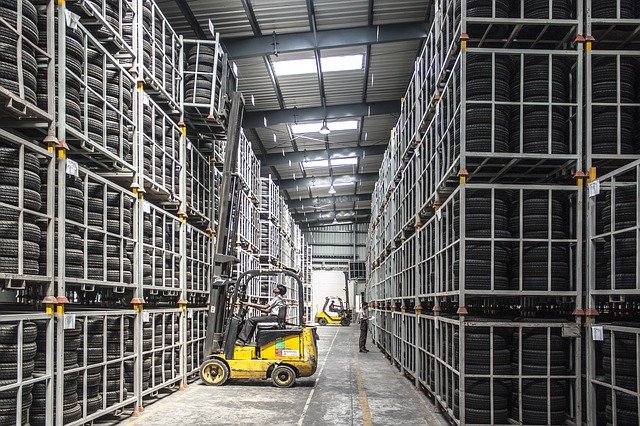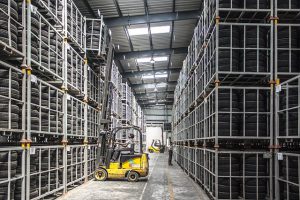- August 12, 2020
- Posted by: David Marshall
- Category: Management

We hear a lot about lean manufacturing and lean principles these days, but it’s kind of a catchword.
I’ve never been a big fan of buzzwords because they only complicate something that’s already simple, but I don’t think “lean” necessarily means anything special.
For the most part, I’ve found you don’t need to be “lean” if you practice one simple philosophy: Say what you’re going to do and do what you said, and do it right the first time.
If your culture and system are geared toward doing things right the first time, then that in and of itself is lean.
Because that means if you’re doing things right the first time, you’re not creating rejects. And if you meet your stated service goals, that means you have all the right things in the right place at the right time to be able to do do that.
That means it’s even difficult to be inefficient.
 For example, short-run consumables like nuts and bolts, or cartons for packing, have a shelf life. You run through them fairly quickly and you can get replacements fairly quickly, which means you don’t want to keep a lot of those things in inventory.
For example, short-run consumables like nuts and bolts, or cartons for packing, have a shelf life. You run through them fairly quickly and you can get replacements fairly quickly, which means you don’t want to keep a lot of those things in inventory.
If you go through 500 cartons in a week or 1,000 nuts and bolts in a week, it makes more sense to order 500 cartons and 1,000 nuts and bolts so they arrive each Friday, and are ready to go each Monday.
If you’re in a high humidity environment, like Florida, and you ordered 10,000 cartons, you could have a lot of damaged cartons that absorbed all the humidity. Or you could buy 100,000 nuts and bolts, only to find that you have to pay to store all of those extras, plus you’ve tied up your cash reserves into inventory.
Instead, your contract with a vendor to manage that kind of thing for you. You set a threshold — say, no more than 5 days’ worth of supply on hand at any time — and the vendor comes into your operation, checks the inventory you have, resupplies and refills, and then invoices you for what you’ve consumed. You save money and you don’t even have to manage your own reordering.
The vendor is providing a service that you’ll pay for, but it’s offset by not paying to store extra inventory. You only have to keep your vendor informed in terms of your sales forecast. That way, they can plan ahead to meet your own growing and shrinking demands.
So, yes, those examples follow Lean principles, but they were just smart inventory management practices before they were ever considered Lean.
Now, I’ve spent all this time pooh-poohing the Lean philosophy, but the whole reason it exists is because companies have lived and died (mostly died) on bad management practices. They would over-order their raw materials because they “got a good deal,” never mind the fact that it would take 20 years to run through all the materials they bought.
Or they had poor layout of their equipment, and their products had to be handled multiple times just to get them from the starting point to the end point. Or they weren’t measuring everything, and as a result were taking unnecessary steps to fix problems that could have been solved if only the source had been identified.
In the end, lean manufacturing is just another word for being smart about your processes and measurement. If you want to stick a new name on it, that’s fine. But it just means you’ve identified your inefficiencies and have taken the appropriate steps to ensure you do what you said you would, you meet your production goals, and you get it all done right the first time, every time.
I’ve been a manufacturing executive, as well as a sales and marketing professional, for a few decades. Now I help companies turn around their own business, including pivoting within their industry. If you would like more information, please visit my website and connect with me on Twitter, Facebook, or LinkedIn.
Photo credit: Pashminu (Pixabay Creative Commons 0)

